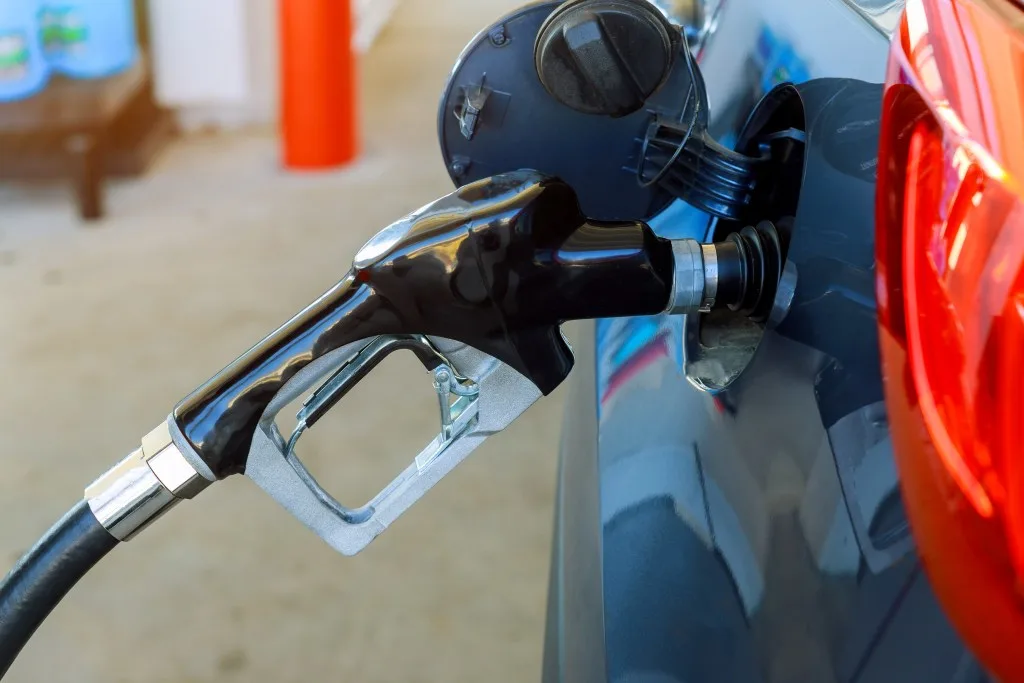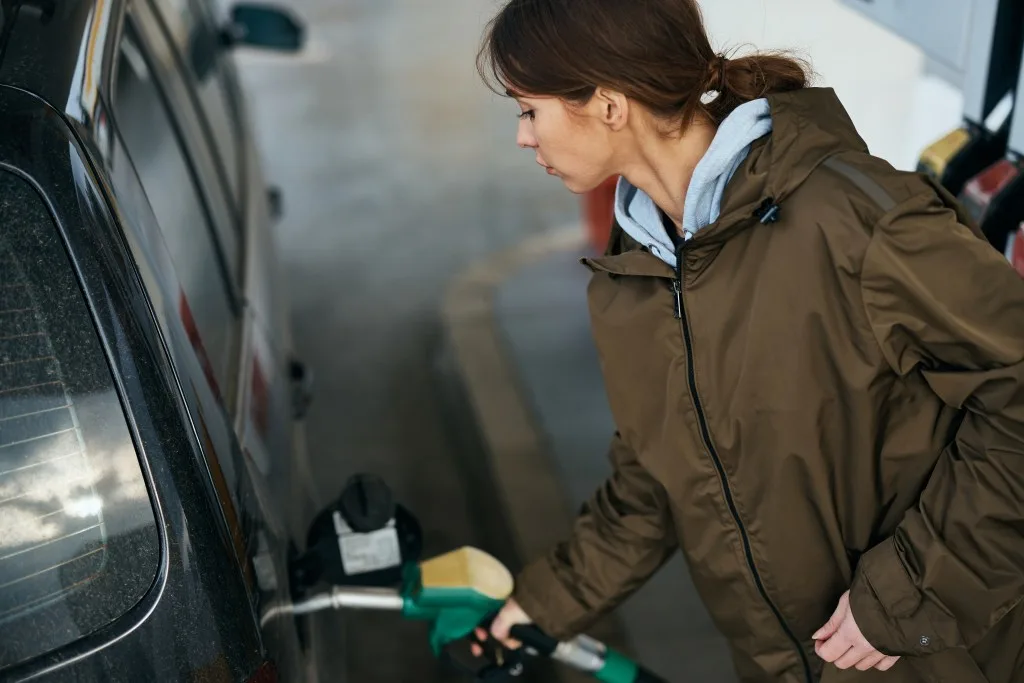Whether it’s a mistake or out of ignorance, putting bad gas in your car is something every driver should avoid. It typically doesn’t end well for you, your vehicle, or your bank account.
If you’ve never experienced this issue, consider yourself lucky. However, not all drivers are nearly as fortunate, especially the ones who filled up at Love’s Travel Stop near Springfield, Ohio.
We’ve got the details on this story and what bad gas does to your car.
Let’s jump in!
Vehicles Damaged by Bad Gas at Travel Stop
When one or two cars break down, it might be a coincidence. However, when 15+ different drivers experience serious issues, it’s no coincidence. Unfortunately, in November 2022, several people experienced problems after fueling up at a popular truck stop.
Those who had car troubles did so after filling their gas tanks with unleaded gas at the same station. Unfortunately, initial reports are that a fuel delivery driver mistakenly dumped diesel into the tanks used to store the gasoline for the pumps.
Shortly after leaving the gas station, many of these drivers learned the painful lesson that gasoline engines and diesel fuel don’t get along.
Drivers called tow trucks to take their vehicles to a mechanic. Love’s has promised to assist with expenses for draining the fuel tanks. However, repair shops informed drivers that these repairs are much more extensive than draining the tank.
What Is Bad Gas?
While a gasoline-diesel mixture is damaging, it’s not the only type of bad gas. There’s a chance that you might even have some sitting in the corner of your garage or shed.
Knowing what to look for when it comes to the quality of your gas is crucial if you want to avoid a significant repair bill.
Like milk, gas can go bad as it sits waiting for you to use it. However, gasoline has a much longer shelf life. Gasoline typically lasts anywhere from three to six months. After this point, gasoline can collect excessive moisture and become bad for your vehicle.
Gasoline containing substantial amounts of moisture can lead to the clogging and gumming of sensitive components. The engine may run fine at first, but it could cause the engine to shut down and require cleaning before it starts again.
To make matters more complicated, two-stroke engines require a specific mixture of oil and gas. Many people have mistakenly grabbed the wrong gas can from their garage or shed and experienced serious issues.
Pro Tip: Learn more about the shelf life of gas by uncovering How Quickly Does Gas Go Bad?

Why Is it Bad to Use the Wrong Type of Fuel?
Using the wrong type or bad fuel can do a tremendous amount of damage to a vehicle. For example, gasoline and diesel fuel may run motors, but they accomplish the task differently.
Diesel is much thicker than gasoline, so putting diesel into a gasoline engine would clog the many sensitive components in the vehicle’s fuel system. On the other hand, putting gasoline into a diesel truck could also cause some severe issues.
Gasoline has a much lower flash point or ignition point than diesel. As a result, the gasoline could ignite early in the fuel system and cause severe damage throughout the engine.
Repairs can easily be in the thousands and easily surpass $10,000+. Unfortunately, insurance companies often deny claims for fueling mistakes. You’ll likely need to foot the bill for the entire repair.
What Are the Symptoms of Bad Gas?
It likely won’t take long to notice if you have bad gas or fuel in your vehicle, depending on how much is in your tank.
You’ll likely notice a massive decrease in performance and acceleration. The engine will probably run extremely rough and appear to struggle by idling high, pinging sounds may occur, and your fuel economy will drop considerably.
In addition, many drivers experience their dashboard lighting like a Christmas tree with warning lights. Your service engine light will likely come on, and various warning messages will tell you that your vehicle requires service.

Will Bad Fuel Ruin Your Engine?
Putting bad gas into an engine can permanently damage the engine and components in the fuel system. However, you can limit the damage by discovering the error as quickly as possible.
Some drivers are fortunate enough to catch the mistake before starting their engines. In these cases, drivers must have their vehicles towed to a repair shop. Workers will carefully remove the fuel tank and thoroughly clean it of contaminants. While this may not be cheap, it’s less expensive than buying a new engine.
On the other hand, drivers who do not catch the mistake could require a new engine and many other components in the fuel system. The longer you drive, the more extensive and expensive the damage is likely to be.
How Do You Get Rid of Bad Gas in Your Car?
Getting rid of bad gas in your car isn’t typically an easy task. If you suspect you have some, your best bet is to have it towed to a local mechanic. This limits the damage and avoids worsening the situation by continuing to drive.
A local mechanic will have the tools necessary to drop the tank or pump the tank free of any bad gas. If you’re lucky, simply adding clean fuel to the system and letting it run through the entire system is as bad as it gets.
If there’s increased moisture in the gasoline, a detergent-based fuel additive may do the trick. This will help remove moisture deposits in the fuel and avoid gumming up the injectors.
The worst cases could require draining the fuel tank and decontaminating it. In addition, you’ll likely need to replace some damaged parts. This is common when diesel drivers accidentally put gasoline in their tanks. If you’re lucky, it’s a four-figure repair bill. However, you could easily find yourself with a repair bill worth five figures.
Pro Tip: Make sure to never commit any of these 7 Deadly Sins of Gas Stations.
Reduce Damage From Bad Gas With Immediate Attention
As you can see, bad gas can severely damage a vehicle. Stop driving immediately if you suspect your car, truck, or RV has it or the wrong fuel type. Even if you have to pay out of pocket for a tow, you increase your chances of saving money in the long run by reducing the potential damage. Be sure to pay attention when filling up your vehicles, and only buy fuel from reputable fuel stations.
We’ll Help You Find the Best Free Camping in the USA
You should give it a try!
As a matter of fact, these free campsites are yours to enjoy. Every time you pay federal taxes, you’re contributing to these lands.
Become a FREE CAMPING INSIDER and join the 100,000 campers who love to score the best site!
We’ll send you the 50 Best Free Campsites in the USA (one per state). Access the list by submitting your email below: